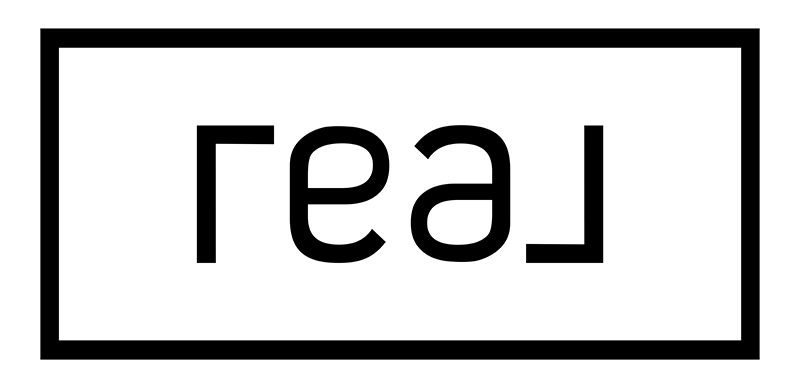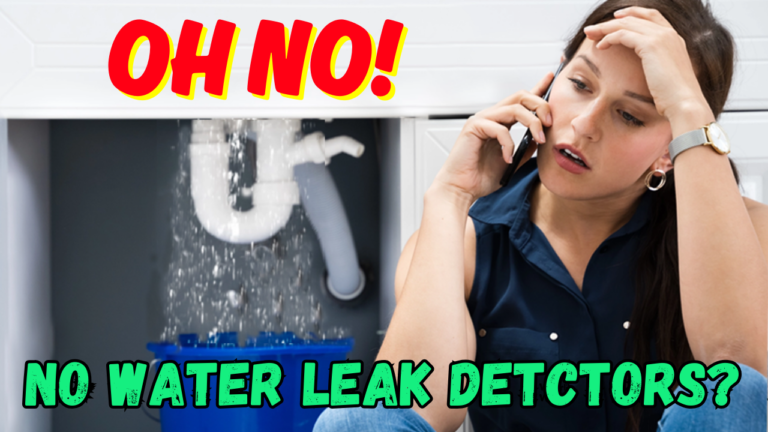A small investment in flood detection technology can save homeowners thousands in repairs and countless hours of stress.
Water damage doesn’t announce itself with a warning. It often starts silently – a small drip under your sink, a hairline crack in a pipe, or a failing water heater seal. By the time you notice water pooling on your floor, significant damage may have already occurred.
How Water Leak Sensors Work
Water leak sensors operate on a simple principle. Most detectors use metal contacts that, when bridged by water, complete an electrical circuit that triggers an alarm. The technology isn’t complicated, but it’s incredibly effective.
Smart water sensors take this protection a step further. They connect to your home’s WiFi network to send alerts directly to your smartphone. Some advanced systems can even automatically shut off your home’s water supply when leaks are detected, preventing catastrophic damage while you’re away.
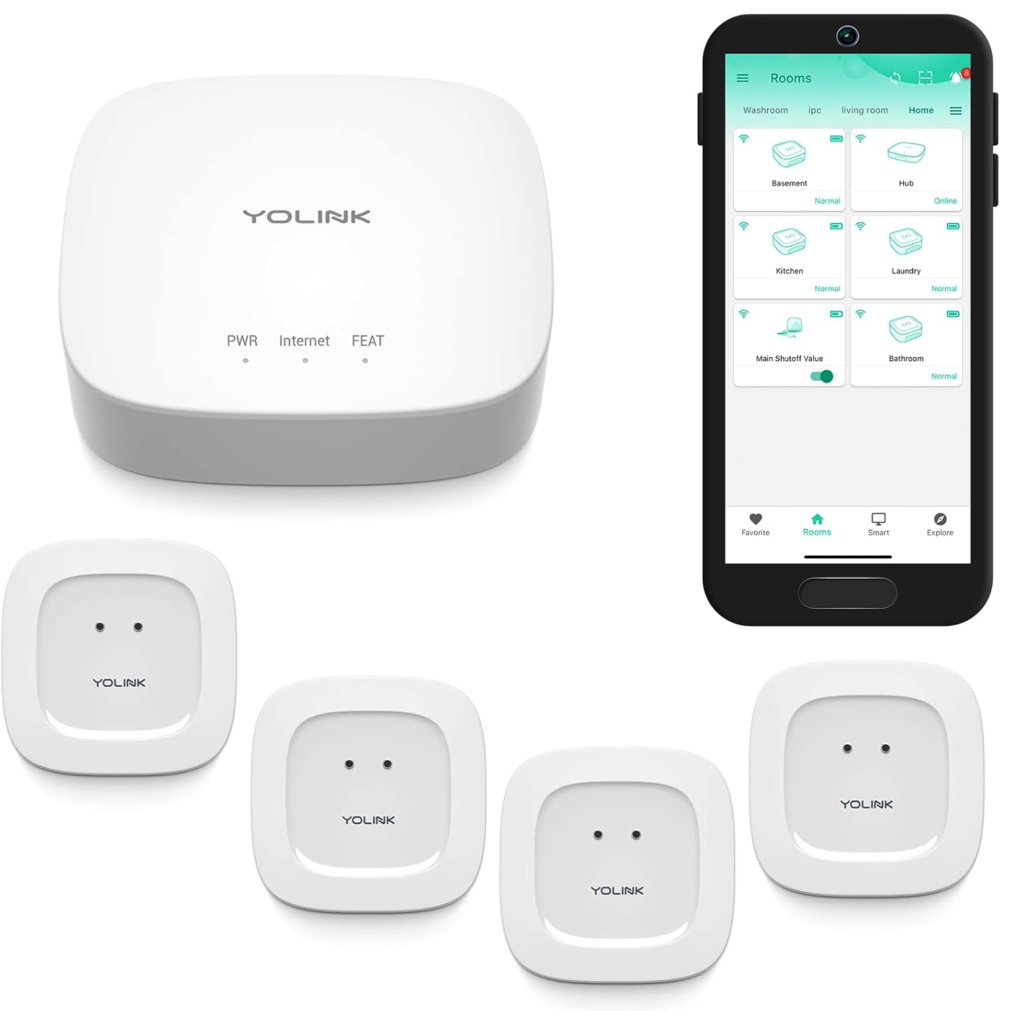
EXAMPLE: Smart Home Starter Kit: Hub & Water Leak Sensor 4-Pack, SMS/Text, Email & Push Notifications.
(Click image to see more info.)
Pros of Water Leak Sensors
- Early Detection: Sensors alert you to leaks at their earliest stages, often before visible damage occurs. This early warning can be the difference between a quick fix and a major renovation.
- Peace of Mind: Particularly for travelers or second-home owners, sensors provide assurance that you’ll know about water issues immediately that occur in the location of the sensor.
- Insurance Benefits: Some insurance companies offer discounts for homes equipped with water detection systems, recognizing their role in preventing expensive claims.
- Preservation of Belongings: Beyond structural damage, water leaks can destroy irreplaceable personal items. Sensors help protect your memories, not just your house.
- Energy Efficiency: By identifying leaks early, sensors help prevent wasted water and the energy used to heat it, potentially lowering utility bills.
Cons of Water Leak Sensors
- Initial Cost: Quality sensors require an upfront investment, though this cost is typically far less than even a minor water damage repair.
- Battery Maintenance: Battery-powered sensors need regular checks to ensure they’re functional when you need them most.
- False Alarms: Some sensors might be triggered by high humidity or condensation, though newer models have improved accuracy.
- Installation Challenges: Wireless connectivity issues or placement limitations may affect some systems’ effectiveness.
- Limited Protection: Sensors only detect water where they’re installed, so strategic placement is crucial for comprehensive coverage.
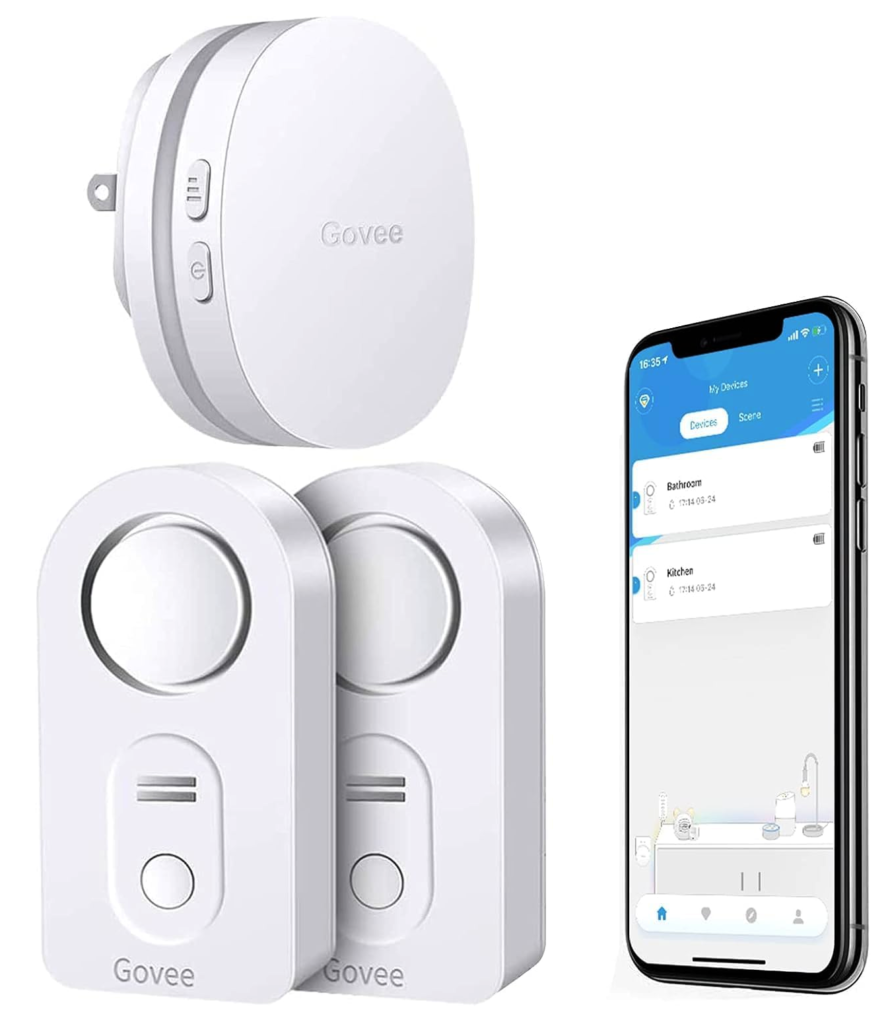
Example: WiFi Water Sensor 2 Pack, 100dB Adjustable Alarm and App Notifications, Leak and Drip Alerts.
(Click image to see more info)
Strategic Placement: Where to Install Water Leak Sensors
For maximum protection, consider placing sensors in these high-risk areas:
Water Heater: Often located in basements or utility rooms where leaks might go unnoticed for days, water heaters are prime candidates for sensor placement.
Under Sinks: Kitchen and bathroom cabinets can hide slow leaks that cause significant damage over time.
Near Washing Machines: The high water pressure and frequent use make washing machines one of the most common sources of home water damage.
Behind Toilets: Faulty seals or overflows can lead to serious floor and subfloor damage.
Around HVAC Units: Condensation lines frequently clog, causing water to back up into your home.
Under Dishwashers: These appliances combine water and electrical components, making leaks particularly dangerous.
Near Refrigerators with Ice Makers: The water supply line to refrigerators is a common failure point.
In Basements: Place sensors at the lowest points where water would naturally collect.
Under Window Sills: Particularly important in regions with heavy rainfall, as window seals can deteriorate over time.
Near Fish Tanks: A cracked tank or filter malfunction can release gallons of water quickly.
Reliability Factors to Consider
Not all water leak detectors offer the same protection. When selecting a system, consider:
Power Source: Battery-operated sensors are easy to install but require maintenance. Hardwired options eliminate battery concerns but may need professional installation.
Connectivity Options: WiFi-dependent systems offer remote monitoring but may fail during power outages. Consider systems with cellular backup for critical areas.
Integration Capabilities: Sensors that work with your existing smart home system provide convenient centralized monitoring.
Audible Alarm Volume: If you have a larger home, ensure the alarm is loud enough to hear from different areas.
Water Sensitivity: Some sensors can detect even trace amounts of moisture, while others require standing water to activate.
Beyond Basic Detection: Advanced Features Worth Considering
The water sensor market has evolved significantly in recent years. Today’s advanced options offer:
Temperature Monitoring: Some sensors also alert you to freezing conditions that might lead to burst pipes.
Automatic Shutoff Systems: High-end systems connect to motorized valves that can stop your home’s water supply when leaks are detected.
Historical Data Tracking: This can help identify patterns of humidity or minor leaks before they become serious problems.
Multi-sensor Systems: Some packages include multiple sensors managed through a single app, providing whole-home protection.
Professional Monitoring Services: Similar to security systems, some water detection systems offer 24/7 professional monitoring with emergency response.
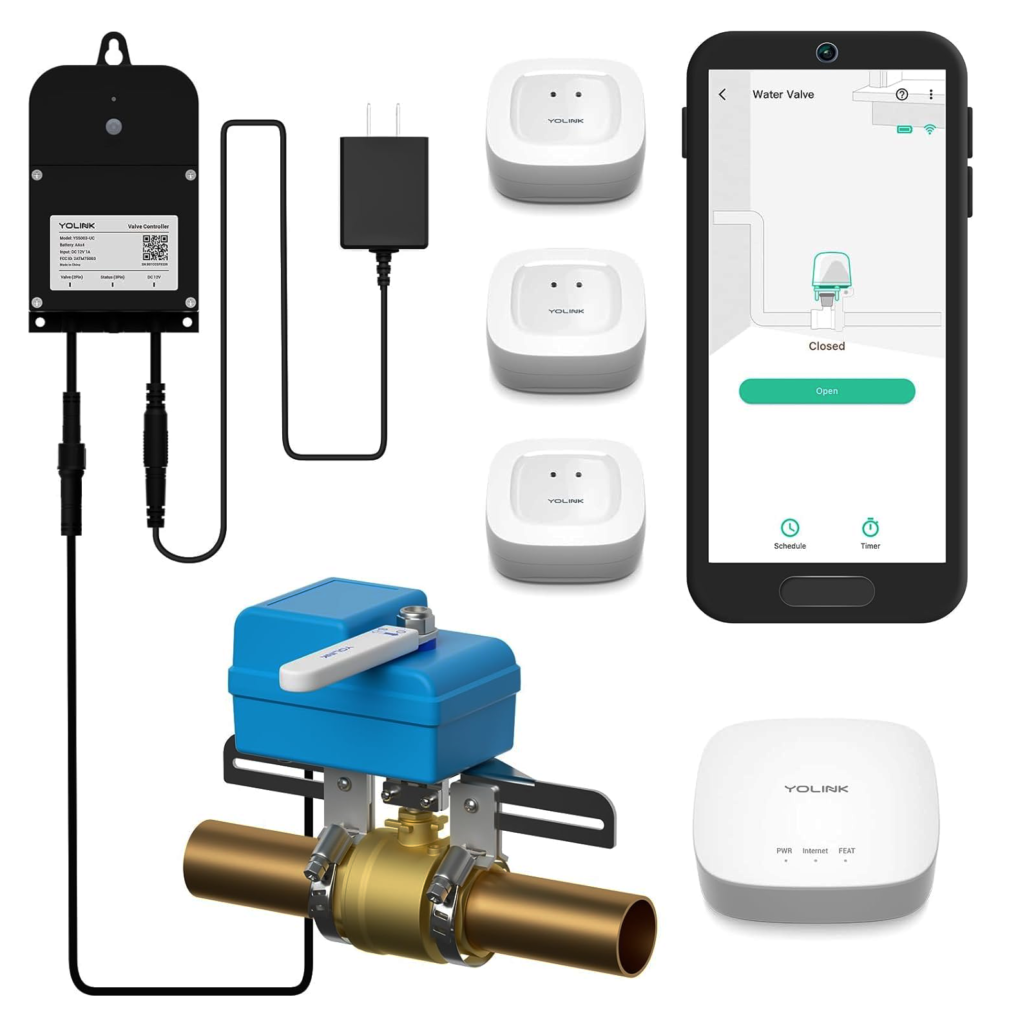
EXAMPLE: Automatic Water Leak Detection & Shut-Off Starter Kit, EVO Valve Operator, Wireless Valve Controller, (3) Leak Sensors, Hub
Real Impact: What Water Damage Really Costs
The average water damage insurance claim exceeds $10,000, but the true cost often goes beyond what insurance covers. Disruption to your life, temporary relocation expenses, and the time invested in managing repairs all add to the burden.
Mold growth can begin within 24-48 hours of water exposure, potentially creating health hazards and dramatically increasing remediation costs. Early detection literally makes the difference between a minor inconvenience and a major health and financial crisis.
Making the Smart Choice for Your Home
Water leak sensors represent one of the highest returns on investment in home protection technology. The modest cost of even the most advanced systems pales in comparison to the potential damage they prevent.
For homeowners preparing to sell, installed water detection systems demonstrate care and maintenance, potentially increasing buyer confidence and property value.
For new homeowners or renters, these sensors provide affordable protection for your belongings and peace of mind as you settle in.
Don’t wait until after experiencing a water disaster to take action. Like smoke detectors, water leak sensors have become an essential component of the responsible, protected home.
As your local real estate agent in Irvine, Newport Beach, and of Orange County, I specialize in using digital and modern marketing strategies to showcase homes as a listing agent to my sellers. I put in the work to create engaging content, promote listings with strategic social media campaigns, and ensure properties get the exposure they deserve.

Hiring me means choosing a dedicated representation that can give your home a powerful online presence, attracting serious buyers and working toward securing the best possible offers!
Let’s talk about what we can do together.
For you.
For your family.
References:
Environmental Protection Agency – “Fix a Leak Week”
https://www.epa.gov/watersense/fix-leak-week
American Water Works Association – “Household Leaks Waste Nearly 1 Trillion Gallons of Water Annually” https://www.awwa.org/
Water damage claim tips & statistics
https://www.policygenius.com/homeowners-insurance/water-damage-statistics/
Water Damage Statistics:
https://www.thisoldhouse.com/foundations/reviews/water-damage-statistics
Institute for Business and Home Safety – “Water Damage Prevention”
https://ibhs.org/risk-research/water/
Centers for Disease Control – “Mold Prevention Strategies and Possible Health Effects in the Aftermath of Hurricanes and Major Floods” https://www.cdc.gov/mmwr/preview/mmwrhtml/rr5508a1.htm
U.S. Department of Housing and Urban Development – “Healthy Homes Issues: Mold” https://www.hud.gov/program_offices/healthy_homes/healthyhomes/mold
